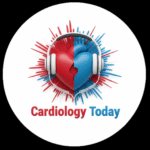High Potassium Reduces ICD Events? Trial Results 09/01/25

Welcome to Cardiology Today – Episode recorded on September 01, 2025. Your source for the latest cardiology research findings from top medical journals.
🎧 Listen to This Episode
📋 Episode Summary
This episode covers 1 recent cardiology research articles published in leading journals including NEJM, JACC, Circulation, European Heart Journal, and Nature Reviews Cardiology.
📚 Featured Research Articles
Article 1: Increasing the Potassium Level in Patients at High Risk for Ventricular Arrhythmias.
Journal: The New England journal of medicine
PubMed Link: https://pubmed.ncbi.nlm.nih.gov/40879429
Summary: This randomized trial in Denmark investigated actively increasing potassium levels in high-risk ICD patients. The study will determine if maintaining high-normal potassium reduces ventricular arrhythmias in this vulnerable population.
📝 Full Episode Transcript
Today’s date is September 01, 2025. Welcome to Cardiology Today. Here are the latest research findings.
Article number one. Increasing the Potassium Level in Patients at High Risk for Ventricular Arrhythmias. This randomized trial in Denmark investigated actively increasing potassium levels in high-risk ICD patients. The study will determine if maintaining high-normal potassium reduces ventricular arrhythmias in this vulnerable population.
Thank you for listening to Cardiology Today.
🔍 Keywords
Medical Topics: Cardiology, Cardiovascular Medicine, Heart Disease, Clinical Research, Medical Education, Evidence-Based Medicine
Journals: New England Journal of Medicine (NEJM), Journal of American College of Cardiology (JACC), Circulation, European Heart Journal, Nature Reviews Cardiology
ℹ️ About Cardiology Today
Cardiology Today provides concise, professional summaries of cutting-edge cardiovascular research for healthcare professionals, medical students, and cardiology enthusiasts. Each episode features the latest findings from top-tier medical journals, delivered in an accessible format perfect for staying current with advances in cardiac care.
Subscribe to stay updated with the latest cardiology research • Share with colleagues • Follow for more medical content